Les Mills Instructor Coaches are a valuable resource for both new and existing Les Mills instructors, helping them to succeed and make a difference in the lives of others and ultimately creating a fitter planet.
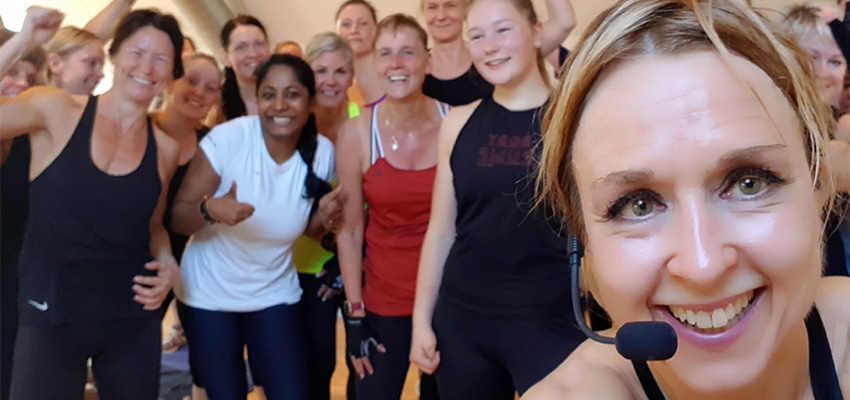
Helene Bendtsen, a Les Mills Instructor Coach from Copenhagen, Denmark, shares her journey of becoming an instructor and how Les Mills changed her life. Ivette Nilsson, also a Les Mills Instructor Coach, originally from Ecuador, now living in Sweden, talks about her journey of becoming an instructor, coaching, and the importance of feedback and staying open to development. Helene and Ivette share their stories of being instructor coaches and supporting instructors to achieve their goals.
Helene, how did you become an instructor?
I had never been to group fitness before despite always being an active person. I had serious spine problems and was told nothing could be done about it. I was not the kind of person who just lies down, and I thought this can’t be true and that I must do something about it. At some point, my daughter started going to BODYCOMBAT® classes and became an instructor at a young age and that was how I learned about Les Mills. The first time I tried BODYPUMP®, I did the class with no weights at all, just the bar. But I was hooked right away by the magic of blending music and moves. By going to the classes, I strengthened my back and beat my back problems. I started functioning better in my everyday life. Then I thought, I want to pass this on to others. That was why I decided to join the initial training and become an instructor. My why is to make a difference to others and help them succeed.
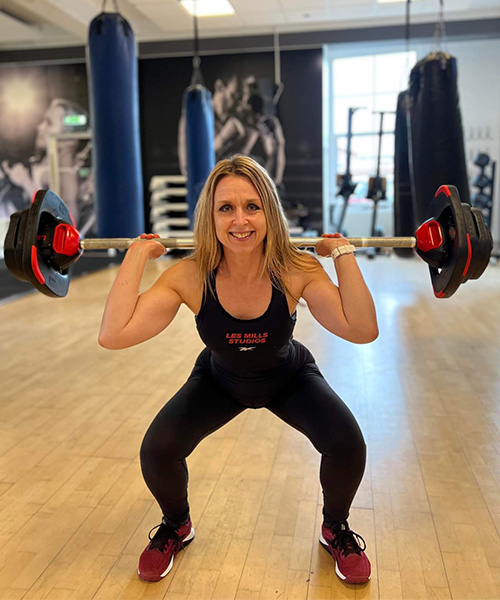
Helene Bendtsen
Tell us about being an instructor coach, what does that mean?
An instructor coach is a coach for instructors. Our support depends on what the instructor needs. We not only support new instructors but also existing ones. We can help and support all instructors. What kind of support we give depends on what they need. It really depends on where you are on your instructor journey and what your challenges are. A new instructor might need support with the initial training, where to start, remembering the choreography, technical issues, or understanding the coaching model. When an instructor is further along in their career, it might be for example simply a lack of motivation or inspiration.
After the covid-19 lockdowns, some instructors felt uncomfortable getting back to instructing. Some might have been instructors for many years and then suddenly had many months of break and were a bit scared to get back, so they needed support to get back to teaching classes.
I learned that online coaching is also very useful. I've been working with quite a few instructors online, including one instructor from the Netherlands and one from the other end of Denmark. And they reached their goals and gave really positive feedback on the process. They filmed themselves and we had video meetings for feedback and talks. There is so much untapped potential in the instructor coach roles, it is important that the instructors know they have coaches all over the Nordics to support them to unleash their individual potential.
What is the best thing about being an instructor coach?
Real success is when the instructor keeps coming back to use the coaching and to get sparring. Most instructors come to us when they need help getting certified although the real work actually starts after you get certified.
We can challenge each other when we know how to ask the right kind of questions. We are not competing with each other but rather helping to find the best qualities in each other and lift each other up. It is about helping each other and supporting each other to grow. My success as a coach is determined by how well the instructors that I coach are getting their goals fulfilled.
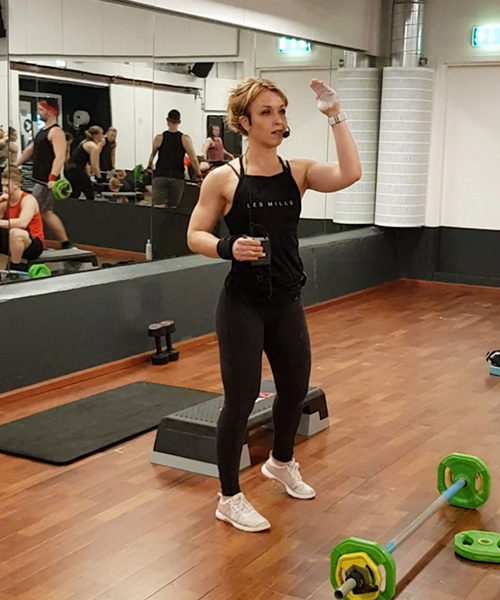
"The best thing about being an instructor coach is seeing the potential and how with the right questions you can help someone to find their own voice and style."
❤️❤️❤️
Ivette’s instructor journey started in 1997. She was determined not to become an instructor like her mother was and Ivette always thought that that was the last thing she would do. She competed in swimming until she was 16. After she stopped swimming competitively, she started attending group fitness lessons and she felt she wanted to try out teaching as well and as you may have guessed, she loved it.
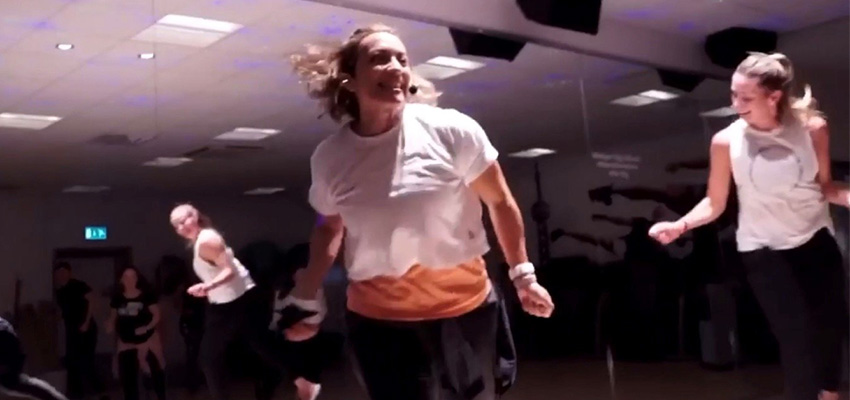
Ivette Samaniego Nilsson
What do you do as an instructor coach?
As an instructor coach, I talk to people about becoming an instructor, I support new instructors if they need support in qualifying for example or I can support a more experienced instructor with their challenges.
How did you become an instructor coach?
When LES MILLS was launching the Instructor Coaches in Sweden I was contacted by Charlotte Carlén, an inspiring instructor for me, and she thought that I could help out in this role. I had been a LES MILLS instructor since 2012. A few years ago, I was thinking that I am getting too old to be an instructor and that we need a younger generation of instructors. Then I received an award for the instructor of the year from the club I work at and one of the reasons why I was chosen was that I am always ready to help others. My why for being an instructor and an instructor coach is to help others, so I realized that I am actually doing what I love. So that was a big reason for me to continue doing what I do. As instructors, we get so much back from the members and that gives us motivation. I support others to find out what their strengths and weaknesses are, and we work on those together.
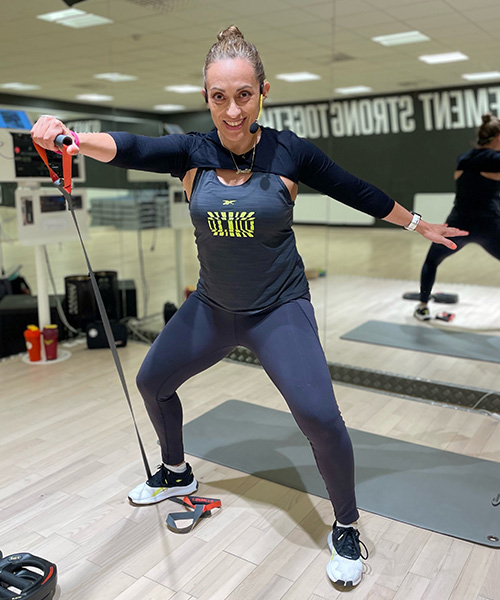
Can you tell us an example of someone you have coached?
Yes, a little bit more than a year ago I started talking to Takashi, a member of our club, about becoming an instructor. I’ve been able to coach him, and he is now a wonderful colleague at our gym. Takashi is half Swedish and half Japanese. He has been so humble and willing to learn. He has grown so much and is such an inspiration to watch. He is very innovative with the use of his social media and that is so inspirational to see as well. He is getting stronger, more focused, and always trying to help people, even after class.
I always talk about being humble and keeping an open mind to keep developing and getting better. All the programs also evolve and change and so must the instructors. Change, explore, and evolve. Sometimes feedback can be hard to hear. In coaching, I like to give an instructor one thing to work on and 2-3 things that they are really good at. Sometimes less is also more, you can give the members time to feel the music and the movement, and you do not have to talk all the time. This is one aspect that I keep developing myself, being a talkative person. When instructors contact me, I usually ask them to send me some feedback they have gotten from Les Mills and check what their next step is and what they need to focus on.
What do you think is the best thing about being an instructor coach?
Being a part of the instructor’s journey, seeing them grow, seeing them become instructors. I am straightforward with my feedback but with a lot of love. I love being a part of the instructor journey, however small the part. I think change is positive as it is always a possibility to grow and evolve. A few years ago, I was really ready to retire but I am still happy teaching my classes. I don’t take anything for granted. I work on my why. I feel there is a purpose in helping others. I try to keep motivating others and I keep an eye on fresh talent so that in the future I can retire.
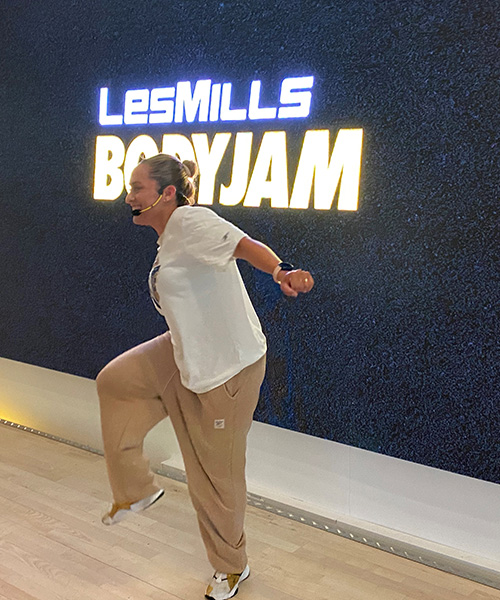
We don't want you to retire Ivette. Keep spreading your light and joy where it is needed!
